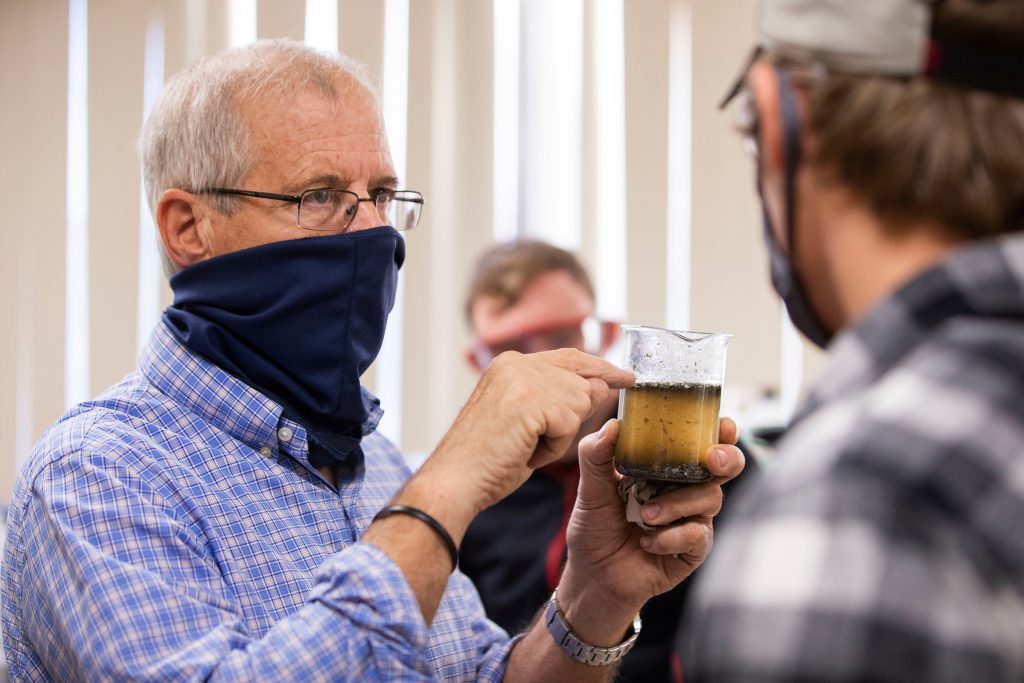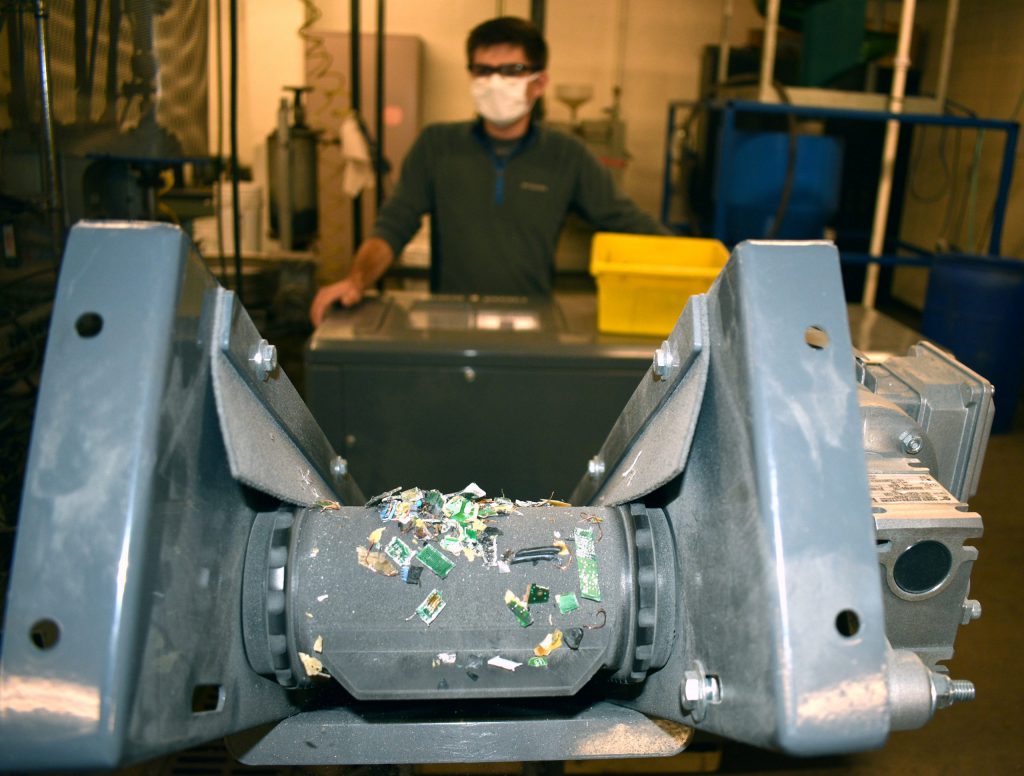It doesn’t take long to encounter Jack Groppo’s passion. His email signature provides a direct indication: “This message was sent on an iPhone, which was made possible by mining 47 different minerals.”
Groppo, a University of Kentucky mining engineering professor and a researcher at the UK Center for Applied Energy Research (CAER), is spearheading an effort to turn domestic electronics waste into a Kentucky industry. He, along with fellow mining engineering faculty member Josh Werner, are building an electronics recycling program at UK that will educate, train and conduct research in a field that they believe holds great promise for the next generation of scientists, engineers and technicians.
“Vertically integrated recycling solutions are virtually nonexistent in America right now,” Groppo said. “Those that are trying to recycle their devices drop their mobile phones, laptops and computers at an electronics store or recycling center. They are then shipped to a disassembly site where batteries and metal-rich components are removed for further upgrading, almost all of which occurs offshore.
“Our program is trying to change that. We want to ‘mine’ the important metals out of those devices right here in Kentucky, and sell those valuable materials to create a sustainable, transformative electronics recycling program at the University of Kentucky.”
The program has had early support and success from both industry and the university. Lexmark is partnering with UK to explore recycling and recovery of precious metals from end-of-life electronic products.

Jack Groppo’s mining engineering lab on October 15, 2020. Photo by Pete Comparoni | UKphoto
Groppo and Werner received a 2020 UK Sustainability Challenge Grant to develop separation and processing systems at UK. The project is the first of its kind to recover valuable and critical materials sustainably and ethically, with UK students collecting personal items such as old phones, tablets, power supplies, cables, etc. from UK students, faculty and staff.
Recovery and sorting will be carried out as a service project by UK mining engineering students. Physical/chemical/metallurgical processing incorporating leaching, solvent extraction and electrowinning for metal recovery and purification will be carried out as laboratory design projects in Minerals Processing (MNG 301) and Sustainable Materials and Recycling Technologies (MNG 570) courses.
CAER is building an educational pilot plant, incorporating methods learned in UK laboratories, to process collected electronic scrap. The pilot plant will be designed, constructed, and operated by students and will be financially supported by the sale of marketable metals (gold, silver, copper, aluminum, etc.).
The environmental aspects of this education, research and outreach project are clear, but it is the educational and research components that have Groppo energized.
“We are training students for future jobs that have not yet been created,” Groppo said. “UK students are going to be at the forefront of an industry that is going to grow significantly over the next several decades. As I often tell prospective students, that is why you come to the University of Kentucky. You get to learn about what is next, get hands-on training, and learn how to develop marketable, real-life skills.”



